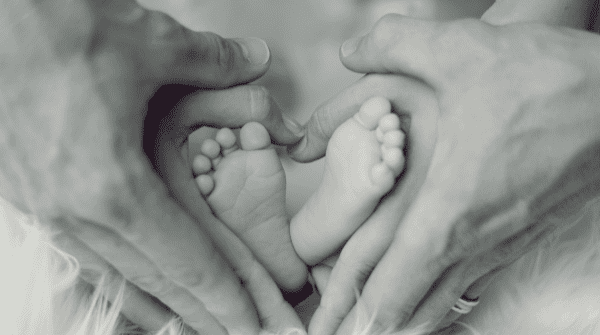By Travis Manning, Pastoral Assistant.
Here are two propositions that must inform how we pray and interact with others on the issue of abortion. First, the biblical position on abortion is not the gospel. Second, abortion and the biblical gospel are antithetical to one another.
We must be clear that our position and our teaching about abortion is not the gospel, though we may be very concerned about the issue of abortion. Our message is not only that “abortion is sin, it is murder, and it is evil.” That is not by any means the message or ministry of the church in its fullness. What then, is missing? Consider this second proposition.
Our foundation for understanding abortion and responding to it is found in the character of God Himself and the good news of what He has done for sinners through Jesus’ life, death, and resurrection. Think about how the gospel compares with abortion. Someone once wrote that in the gospel, Jesus has said in effect “my life for you,” whereas abortion says in effect “your life for mine.” Abortion sacrifices a child for the parent or parents’ desires. According to the gospel, Jesus is sent by the Father, He condescends to be born in the flesh, lives a perfect life, and dies a sinless death in the place of sinners, that they might have
“For God so loved the world, that he gave his only Son, that whoever believes in him should not perish but have eternal life.”
“For even the Son of Man came not to be served but to serve, and to give his life as a ransom for many.”
We must see that abortion is at odds with the gospel of God because it is at odds with God himself, with His character. Consider what is written about child sacrifice in Jeremiah 32:35:
“They built the high places of Baal in the Valley of the Son of Hinnom, to offer up their sons and daughters to Molech, though I did not command them, not did it enter into my mind, that they should do this abomination, to cause Judah to sin.”
This passage shows us that God is not like other gods, who required child sacrifice. As it is written there, it did not enter into His mind! It would not have because God is not like gods who are needy and take from their worshippers, but rather He is the God who gives life and breath and everything to His creatures and who gave His own Son that sinners, His enemies, might be reconciled to Him.
Today’s abortions are not all that different from the idolatry of child sacrifice in the Old Testament time. Then children were sacrificed to various gods. Today children are murdered for the sake of personal choice and freedom. This is the opposite of the gospel. We sacrifice our children in our selfishness, but God sacrifices His Son in love for His enemies.
We must certainly conclude that abortion is evil because it is contrary to God’s character and also His actions. However, we must not stop there. We must also be convinced that God gave His Son up for His enemies even while we were enemies who were doing evil deeds and He reconciled us to Himself.
He is able to reconcile to Himself those who take part in abortion. He has such love and compassion for sinners. As we interact with those supporting abortion, getting abortions, or actively participating in abortion, let us not forget Jesus’ compassion for the lost:
“When he saw the crowds, he had compassion for them, because they were harassed and helpless, like sheep without a shepherd.” Matthew 9:36
The gospel must lead us to compassion for broken people, who need more than to be told they are sinners. God does not simply pronounce condemnation for sin in His Word, nor does He stop at giving up His own Son for us, but He also adopts us. He brings us into His life. This is the question for us: do we have compassion for these people making these decisions? How will we interact with the mother who is considering an abortion? Are we willing to give up time and comforts and to love them, befriend them, welcome them into our lives, our homes, our families? This is what the gospel compels us to do.
As we consider praying this weekend in cooperation with 40 Days for Life, we ought to pray that God’s character and His gospel might be the foundation for the undermining of abortion, not simply that abortion would end. We ought to pray that abortion-minded individuals might hear of who Jesus is, what He has done, and what that means for them, not simply that they would decide against getting an abortion. We can pray that we might be compelled to welcome such individuals and families into our lives.
Postscript: There are some complex ethical issues in certain cases regarding abortion. I do not intend to comprehensively address them here but my intention is to set forth some basic applications of the gospel to this issue and how we interact with others about it.

